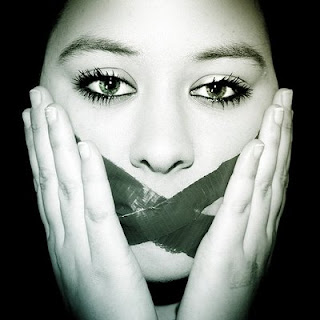I'm sure you all have a favourite book – one that is your beacon of light and your best friend in times of distress. Now imagine if it was torn to shreds and thrown into the fire. How would you react?
I’m sure you all remember the senseless banning of reputed author Rohinton Mistry’s book – 'Such a Long Journey', by Aditya Thackerey, the 20-year-old grandson of Bal Thackeray. Dissatisfied with a few paragraphs wherein Rohinton Mistry had portrayed them as a party that uses violent tactics, Thackerey asked the Vice Chancellor to revoke the book from the syllabus and the Vice Chancellor did so, without consulting the Academic Council, which is the usual procedure.
Don’t you think this is a form of intellectual terrorism? No one can dictate what we should or shouldn’t read. This kind of “Talibanisation” of literature is just shocking!
Today it is this book, tomorrow another, where will this end? Literature that is internationally recognized and applauded cannot be banned on the whim of a 20 year old who himself admits that he has not even read the entire book, only the so-called ‘objectionable’ passages.
Bookshops pulled the novel of their shelves. The repercussions of this were that people showed even more curiosity to read the book and since it was not available officially, pirated copies made a killing for the unscrupulous black marketers.
This ban is not imposed by the government but by a petty regional political party not even in power. This is not the 1st time this has happened. In the past also, books have been banned. Remember the whole Salman Rushdie controversy? His book ‘The Satanic Verses’ was banned in India because Muslims were infuriated by Rushdie’s portrayal of the prophet Mohammed. Ayatollah Khomeini of Iran pronounced a fatwa against Rushdie, who had to live under police protection provided by the British Government for ten years. His Japanese translator was murdered. His Italian one was stabbed and his Norwegian publisher, was shot but thankfully survived. Bookshops stocking the novel were bombed and stone-pelted, and the book was burned in public places.
And it hasn’t ended there. Almost a quarter of a century after Rushdie published 'The Satanic Verses', people were still gunning for him at the recent Jaipur literary fest. Rushdie was denied entry at the literary fest and was even given death threats.
Joseph Lelyveld's distinguished book on Gandhi, 'Great Soul: Mahatma Gandhi and His Struggle With India', had been banned in the state of Gujarat, AK Ramanujan's great study of the Ramayana has been removed from the syllabus of Delhi university, and the country's most revered modern artist, MF Husain, died in exile after Hindu fundamentalists hounded him out of the country because they found his paintings of nude gods and goddesses too offensive.
Censorship is not limited only to print, but has now also entered digital media. A few months ago, Telecom Minister Kapil Sibal suggested that social networking sites such as Twitter and Facebook should monitor content written by its users and remove offensive material from their sites.
Monitoring such huge volumes of content is not possible physically. Besides, Facebook already has policies and on-site features that allow other users to report content as abusive or defamatory. Clamping down on social networking sites, whose very aim is to provide a platform where people can share their thoughts and emotions freely, is a ridiculous proposition.
However, I do not advocate full and uncensored freedom. There is always a balance to be struck between freedom to speak your mind and the good sense to know when to keep silent, i.e. what many would call ‘self-censorship’. Nevertheless, the right to express opinion freely is fundamental in a democratic society.
We may detest certain opinions, but we should resist attempts to suppress them. If certain sections of society do not like something that someone says or writes, the response should not be a fatwa, book-burning or banning, attacks on publishers or death threats to the author. It should be argument. The response to words should be words. It should be discussion. Debate.
We live in one of the largest democracies in the world, and our Constitution clearly says that prohibiting a newspaper /author from publishing his own views about a topic has been held to be a serious violation of the freedom of speech and expression.
I would like to end with a quote by Evelyn Beatrice Hall that sums up the essence of freedom of speech. She said and I quote, "I disapprove of what you say, but I will defend to the death your right to say it".


i totally agree....n i love the quote :D
ReplyDeleteThank you Sadiya!!
ReplyDeletei like:)
ReplyDeleteThank you! :D
ReplyDelete